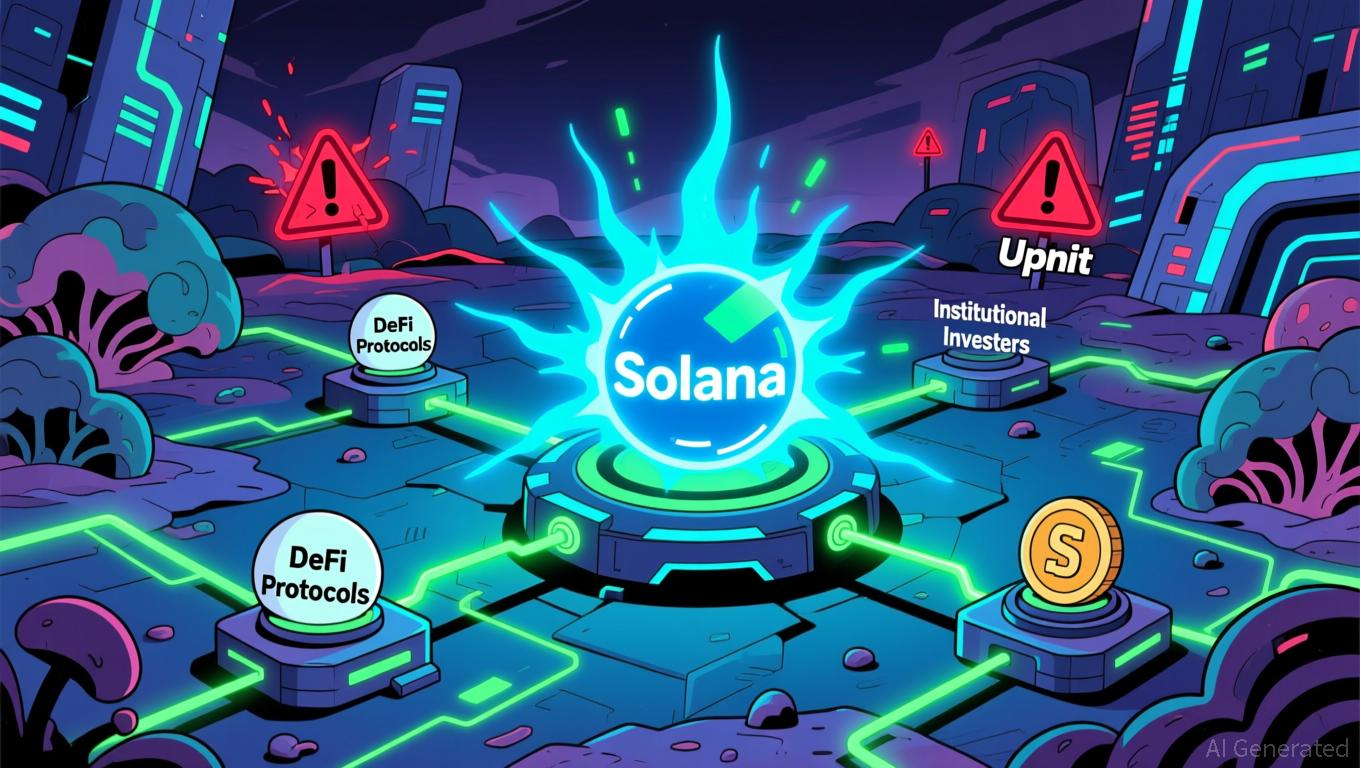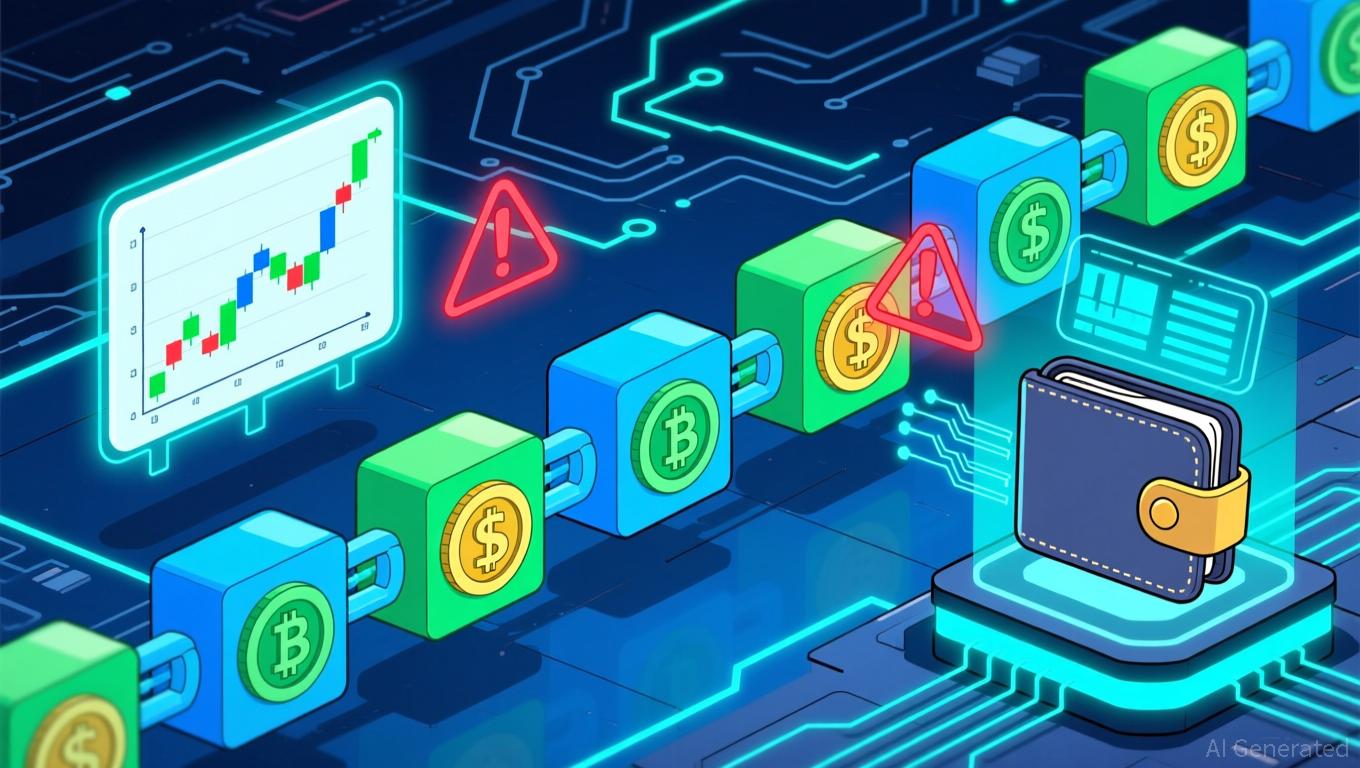Ethereum Updates Today: ETH Bishkek 2025: Igniting the Web3 Movement in Central Asia
- Central Asia's first Ethereum hackathon, ETH Bishkek 2025, aims to boost Web3 development through workshops and mentorship for local developers. - Hosted by TAIKAI.network and ETHGlobal, the event seeks to strengthen blockchain infrastructure and dApp innovation in the region. - The hackathon aligns with Ethereum's Fusako upgrade and price rebound, highlighting decentralized tech's potential to drive regional adoption despite limited institutional funding. - Grassroots initiatives like this could positio
ETH Bishkek 2025: Pioneering Web3 Innovation in Central Asia
Central Asia is set to host its inaugural Ethereum hackathon, ETH Bishkek 2025, a landmark event designed to accelerate the region’s Web3 ecosystem. Taking place from October 24 to 26, 2025, at Bishkek’s Technopark, the hackathon is being organized by local partners such as TAIKAI.network and potentially ETHGlobal. The event aims to empower both novice and intermediate developers through hands-on workshops, mentorship, and collaborative coding sessions.
By bringing together emerging talent, ETH Bishkek 2025 seeks to enhance the blockchain landscape in Central Asia and encourage the creation of innovative decentralized applications (dApps). This initiative is a significant move toward expanding the reach of the cryptocurrency sector beyond its traditional centers.

Ethereum’s Momentum and Upcoming Upgrades
The timing of ETH Bishkek 2025 coincides with notable developments in the Ethereum ecosystem. In early November 2025, Ethereum’s price experienced a 5% recovery, reaching $2,922 after a period of market turbulence. Despite $589 million in net outflows from Ethereum investment products, the network is preparing for the Fusako upgrade on December 3, 2025. This update is anticipated to improve transaction execution and staking processes, potentially reinforcing investor confidence in the long run.
These advancements highlight Ethereum’s adaptability and strategic importance for regions like Central Asia, where regulatory frameworks and technology adoption are still evolving.
Building a Local Blockchain Community
The grassroots approach of ETH Bishkek 2025 reflects a broader movement toward regional blockchain education. Previous Ethereum hackathons, particularly those led by ETHGlobal, have been instrumental in launching new dApps and engaging developers, even if they haven’t directly impacted token prices. Over time, such initiatives help cultivate technical skills and foster vibrant local ecosystems, positioning Central Asia as a potential leader in the next wave of Web3 expansion.
Experts emphasize that tailoring onboarding processes and supporting local talent are essential for Ethereum’s continued global growth.
Potential Impact and Broader Implications
Although the immediate effect on ETH’s price remains uncertain, the hackathon could indirectly drive greater adoption of Ethereum in the region. Increased developer participation may result in the creation of novel dApps that leverage Ethereum’s mainnet, thereby boosting the network’s utility. This aligns with Ethereum’s ongoing roadmap, which prioritizes scalability and value capture through upgrades like Fusako.
ETH Bishkek 2025 also underscores the interplay of geopolitical and economic factors influencing blockchain adoption. While Central Asia currently has limited institutional investment in cryptocurrencies, there is a growing grassroots enthusiasm for decentralized technologies. This mirrors global trends where community-led events often pave the way for broader regulatory and financial sector involvement.
Looking Ahead
As Ethereum continues to evolve following the merge and prepares for the Fusako upgrade, regional gatherings like ETH Bishkek 2025 exemplify the network’s decentralized spirit. The long-term success of such events depends less on short-term market movements and more on sustained community engagement—a principle that has consistently driven Ethereum’s progress.
Disclaimer: The content of this article solely reflects the author's opinion and does not represent the platform in any capacity. This article is not intended to serve as a reference for making investment decisions.
You may also like
Privacy Altcoins Surge While Crypto Markets Decline
In Brief Cryptocurrency markets faced a major downturn in recent weeks. Privacy altcoins like Zcash rise amidst stricter regulation concerns. Upcoming regulations pose liquidity risks for privacy-focused cryptocurrencies.

Solana News Today: Institutions Remain Confident in Solana Amid Security Concerns and Volatile Prices
- Solana's on-chain trading volume now exceeds centralized exchanges, driven by $510M in ETF inflows and institutional adoption of DeFi protocols. - Price volatility and security breaches, including Upbit's $36.8M Solana-based theft, highlight risks despite $3B+ in corporate treasury holdings. - Institutional capital continues to flow into Solana's ecosystem, with DWF Labs committing $75M to scalable DeFi infrastructure amid TVL recovery to $120B. - Forward Industries reports $668M unrealized losses as Sol

XRP News Today: XRP ETFs See Rapid Growth, Price Remains Flat—Will Increased Inflows Overcome Technical Barriers?
- XRP ETFs saw $164M inflows on Nov. 24, 2025, with Grayscale and Franklin Templeton launching new products amid rising institutional interest. - Price rebounded to $2.20 but remains range-bound below key technical levels, forming descending patterns despite ETF-driven liquidity gains. - Ripple's RLUSD stablecoin surged 56% in 30-day volume to $3.5B, now third-largest GENIUS Act-compliant stablecoin after USDC and PYUSD. - Analysts predict $5.05 by 2025 and $26.50 by 2030, but XRP's 16.95% drop from 30-day

SEC Considers Blockchain Stock Advancements as Concerns Over Conventional Market Stability Persist
- SEC plans to discuss tokenized stock regulations with major firms like Coinbase and BlackRock , aiming to modernize securities rules for blockchain-based finance. - Proposed "innovation exemption" seeks to fast-track crypto products but risks destabilizing traditional markets by creating valuation gaps and eroding investor protections. - WFE warns tokenized shares could disrupt market structure, while Nasdaq proposes unified order books with shared CUSIP identifiers to align with existing systems. - Regu
